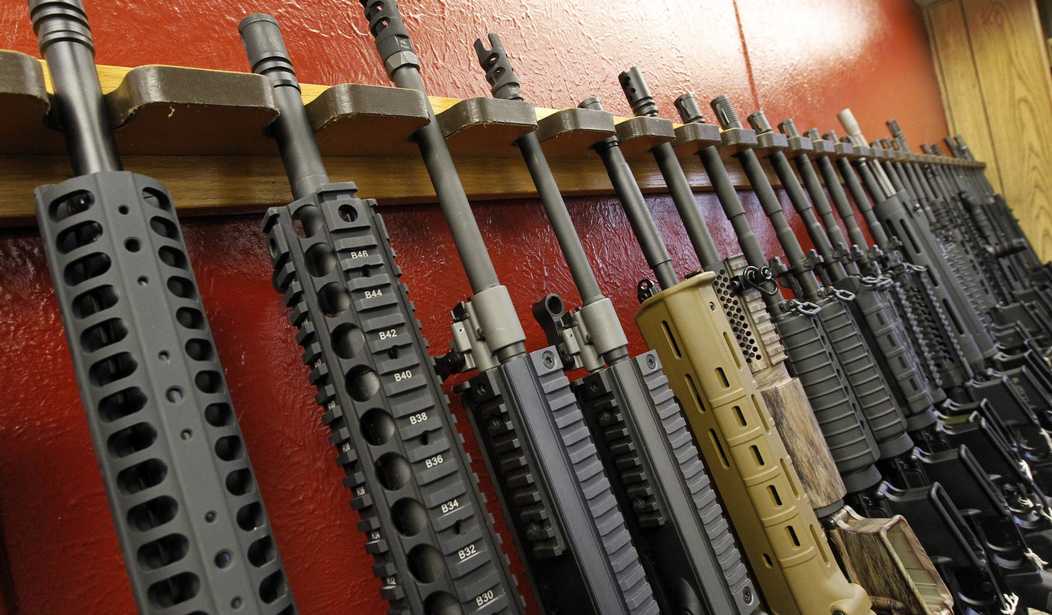When it comes to undercover investigative journalists, there are few better than Project Veritas’ James O’Keefe. In the last decade, O’Keefe’s undercover exposés have revealed the corrupt underbelly of some of the Left’s most revered institutions (such as Planned Parenthood), as well as exposing the incompetence that infects many government agencies. O’Keefe’s advocacy has earned him many friends but also enemies, including some inside the government. A recent event suggests the FBI is among those not happy with O’Keefe.
The incident in question happened when O’Keefe, a resident of New York, tried to purchase a firearm from a retailer in that state. Although he has never been convicted of a felony and does not fall within any of the eight other reasons under federal law that would prohibit him from buying a gun, he was turned down.
The FBI figures in this equation because since 1998, it has been responsible for maintaining the database of information through which all retail firearm sales must be checked (the so-called “NICS” system). If there is no information in the database establishing that the purchaser falls into one of the classes of persons prohibited from possessing a gun, the sale may proceed. On the other hand, if the database reveals that a purchaser falls within one of the prohibitory categories, the retailer is notified and the sale cannot lawfully go forward.
Since O’Keefe demonstrably does not fall within one of the disabling categories, his purchase should have been promptly approved. That it was not, raises suspicions that the FBI has on its own decided it does not want him to have a firearm and therefore told the retailer, “No.” This is against federal law, and is the basis for a challenge to the Bureau’s action filed by O’Keefe last week in federal court.
It is in fact high time someone challenged the FBI for what appears to be a secret “watch list” of people it (or a sister agency such as ATF) simply does not want to have a firearm – a “We Don’t Like You” Watch List.
While the law establishing the NICS system is quite clear in defining who are individuals prohibited from possessing firearms, there is wiggle room for the FBI to delay a sale if there is a legitimate reason to suspect a person might fall into a prohibited category. In such case, the FBI notifies the retailer that the sale should be “delayed,” but if nothing further is found within three business days the retailer may proceed with the sale.
Recommended
Thus, if the FBI has a legitimate reason to suspect a prospective purchaser may be a prohibited gun owner but needs extra time to confirm this, it has three days to do so. The “delay” power was never intended as a way for the government to play games and prevent a law-abiding citizen from purchasing a firearm.
Still, despite the clarity of the NICS law, and the clear intent of the Congress in passing it to ensure that the process not be used to deny a legitimate purchaser the ability to obtain a firearm in the normal course of business, the FBI continues to play games and misuse its regulatory power.
In recent years, for example, in states that lawfully allow marijuana for medical reasons, the federal government has decided that if a person possesses a medical marijuana card but does not in fact use marijuana, the individual still is considered to be a user of an “unlawful” substance, and denied the ability to exercise their Second Amendment right to purchase a firearm.
Also, the FBI for years has sought the power to consider someone whose name has been put on a secret “Terrorist Watch List,” to be prohibited from purchasing a firearm. While the Congress has properly refused to grant the government such arbitrary power, it is reason for legitimate concern given the lack of transparency with which the government compiles and maintains such “lists.”
Whatever the real reason for the FBI denying O’Keefe the ability to purchase a firearm, it is an abuse of power. Last week’s lawsuit hopefully will not only shed much needed light on the procedures by which the government decides who can exercise their right to keep and bear arms, but will ultimately hold accountable those officials who are abusing the law in such critical matters. Many Americans in addition to James O’Keefe have a stake in the outcome of this case.
Bob Barr represented Georgia’s 7 District in the U.S. House of Representatives from 1995 to 2003 and was the U.S. Attorney for the Northern District of Georgia from 1986 to 1990. He now serves as President of the Law Enforcement Education Foundation based in Atlanta, Georgia.

























Join the conversation as a VIP Member